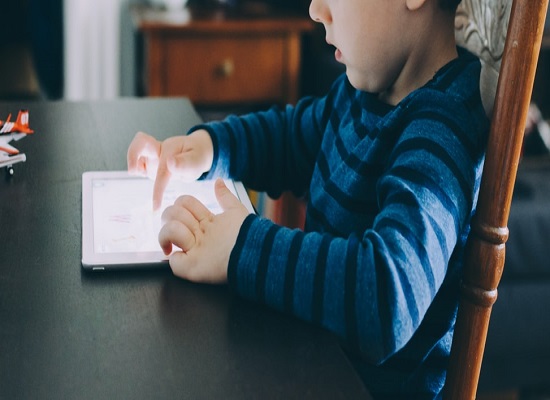As a parent, it can be distressing to learn that your child has accidentally stumbled upon porn or any other explicit content online.
“Explicit content” is pornographic material often of a sexual or violent nature, which is offensive or inappropriate for minors or those who are easily offended.
While the internet offers numerous benefits and opportunities for learning and entertainment, it can also expose children to inappropriate content that can be damaging to their well-being and development.
Here are some tips on what to do if your child accidentally comes across porn or explicit content online:
1. Stay Calm and Reassuring
It is crucial to stay calm and reassuring when your child approaches you with this issue.
It is natural to feel alarmed or concerned, but it is essential not to overreact.
Reacting strongly can make your child feel ashamed, scared, or embarrassed to talk to you in the future.
Instead, reassure them that they are not in trouble and that you are there to help them.
2. Listen to Your Child
: Create a safe and non-judgmental space for your child to talk about what they saw and how it made them feel.
Listen attentively and avoid interrupting them.
Try to understand their experience and perspective, and provide emotional support.
Encourage them to express their feelings and concerns and reassure them that their feelings are valid.
3. Explain The Situation
It is vital to explain the situation to your child in a language that they can understand, depending on their age and maturity level.
You can use age-appropriate language and explain that porn and explicit content are not meant for children and can be harmful to their development.
Explain that it is not their fault and that they did nothing wrong.
4. Set Boundaries and Rules
Discuss with your child about the boundaries and rules you would like to set regarding internet use.
Explain that some content is not suitable for children and that they should not be accessing porn or other explicit content online.
Let them know what type of content is appropriate for them and what is not, and make sure they understand the reasons behind these rules.
Reiterate that they can come to you with any questions or concerns.
5. Monitor Your Child’s Online Activity
Regularly monitor your child’s online activity, including their browsing history and search queries.
This way, you can detect any inappropriate content or websites they may have accessed.
Keep an eye out for any changes in their behavior, such as mood swings, withdrawal, or anxiety, which could indicate that they have seen something inappropriate.
6. Block or Filter Access
Consider using parental controls or filtering software to block access to porn and explicit content online.
Many internet service providers offer free parental controls that allow you to filter content and limit access to certain websites.
This can be a helpful tool to protect your child from exposure to harmful content.
7. Educate Your Child
Teach your child about healthy sexuality and relationships in a way that is appropriate for their age and level of understanding.
Help them understand the differences between healthy and unhealthy relationships and consent.
Educate them on the risks of online activity, such as sharing personal information and communicating with strangers.
8. Seek Professional Help
If your child is experiencing emotional distress or anxiety related to their exposure to porn or explicit content, consider seeking professional help.
A mental health professional can help your child process their feelings and develop coping strategies.
They can also help you navigate the situation and provide support for both you and your child.
Accidental exposure to porn or explicit content online can be a challenging situation.
All tips listed above should be taken seriously.
By staying calm, listening to your child, and providing reassurance and guidance, you can help your child navigate this difficult experience and avoid future exposure to harmful content.
With the right approach, you can help your child feel safe, secure, and confident as they navigate the digital world.
Find more resources on parenting here




